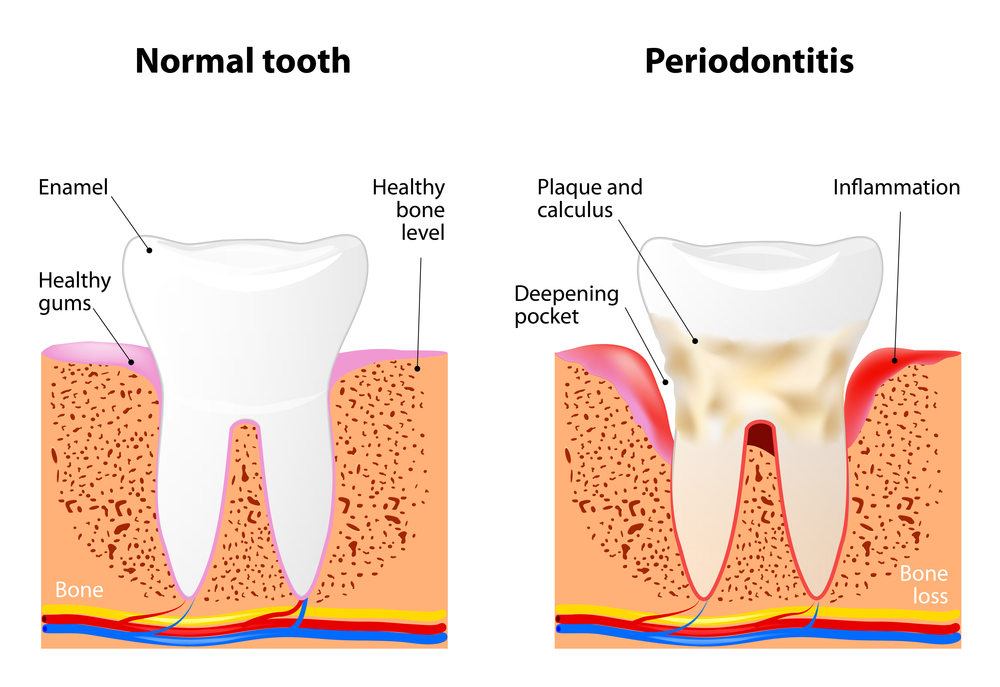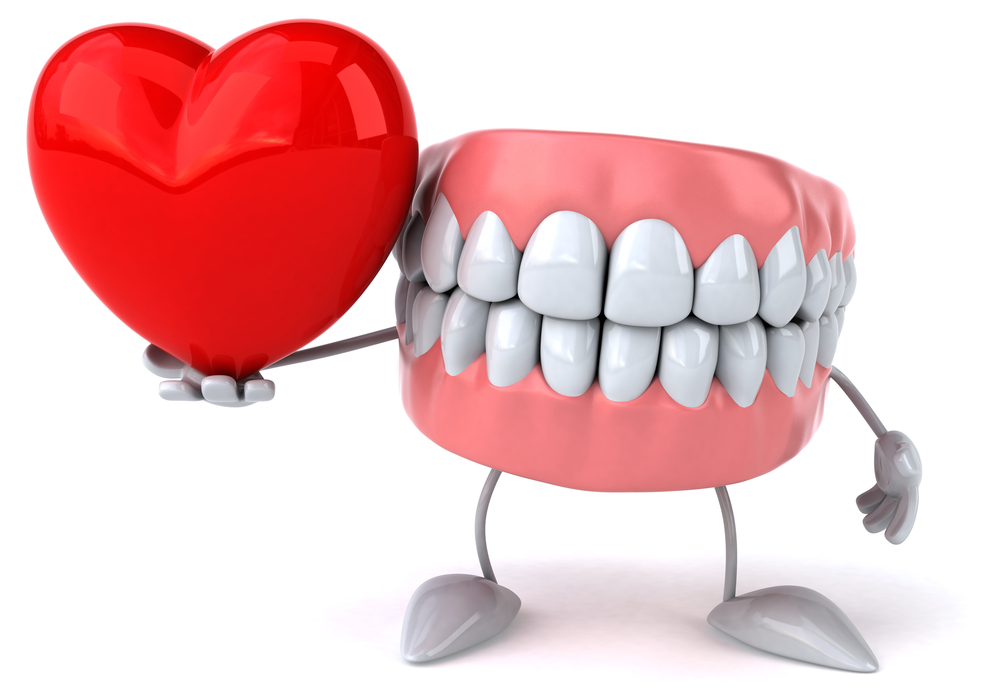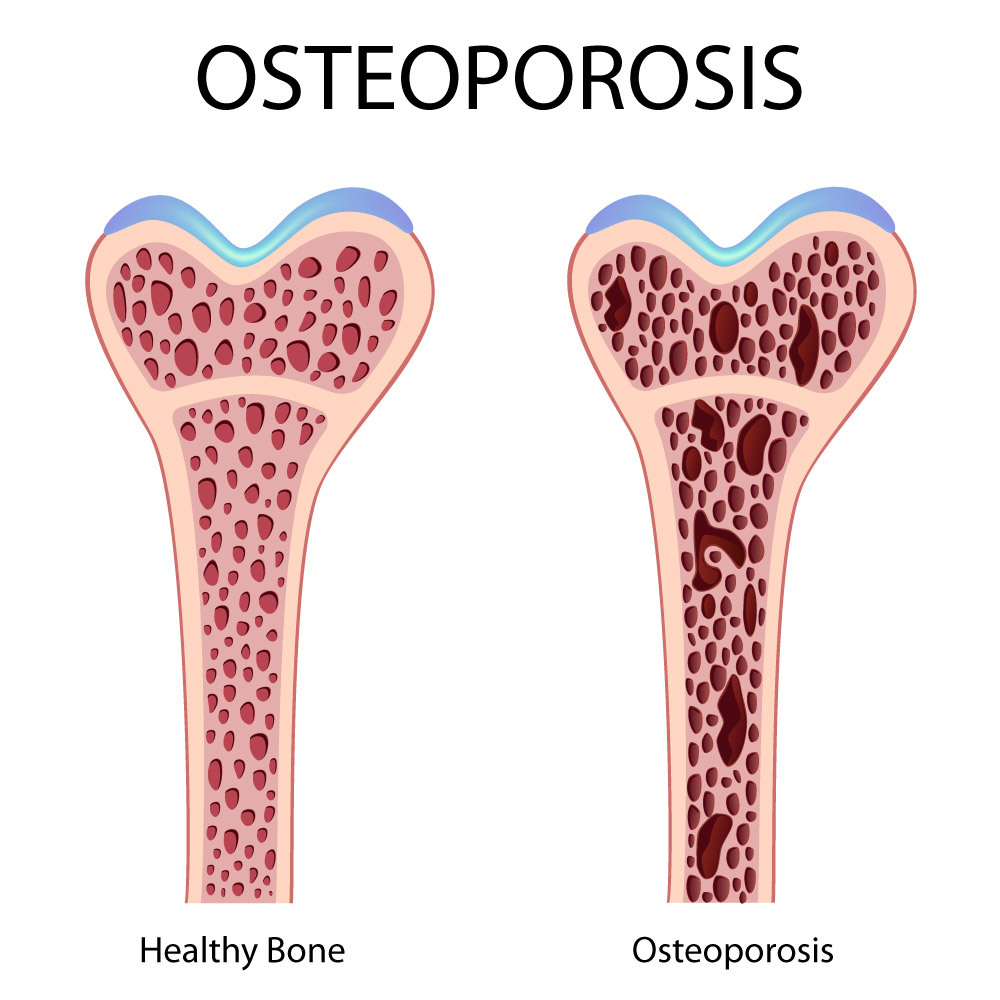Healthy teeth and gums are definitely something to smile about. However, your mouth isn’t the only thing that benefits from good dental care. Gum disease, resulting from factors like poor dental hygiene, can harm more than your mouth. Here are 3 ways your dental health can affect your overall health.
Dental Health: Gum Disease
Periodontal disease, commonly referred to as gum disease, occurs when your gums that surround and support your teeth become infected. The disease is caused by plaque, the film of bacteria that constantly coats your teeth and hardens to tartar if you don’t brush your teeth.
The bacteria in plaque and tartar that aren’t removed cause inflammation of the gums, known as gingivitis. A good dental routine can reverse gingivitis. However, if your teeth aren’t effectively cleaned, gingivitis will advance to a more severe form of gum disease known as periodontal disease.

The gums begin to pull away from the teeth and form pockets that can become infected with bacteria. Your body will begin to break down the bone and connective tissue keeping your teeth in place to fight the infection. This can lead to complete loss of teeth and jaw bone tissue.
Heart Disease
The links between dental health and heart health aren’t solid. At best, experts say that your dental health may have an impact on your heart health.

Some researchers suggest that gum disease may contribute to heart disease. The bacteria in the infected pockets of the gums can break loose and get into a person’s blood stream, attach to blood vessels, and increase clot formation.
Some researchers have also suggested that inflamed gums due to periodontal disease may trigger clot formation; clots decrease the flow of blood to the heart and increase the risk for a heart attack.
Osteoporosis
Ten million Americans have osteoporosis, a bone disorder in which bones are weakened due to a loss of bone density. While many people aren’t diagnosed with the disease until a serious fracture occurs, your dentist may be able to spot signs of the disease and recommend you visit the doctor.

Here are some ways the dentist may be able to identify signs of osteoporosis:
- Medical history in your file
- Dental x-rays can reveal a loss in bone density over time
- Visible bone loss in jaw and around teeth
- Gum disease
Full-Term Pregnancy
Many studies suggest that gum disease can lead to preterm, low-birthweight infants, but not all studies have found solid ties.
Researchers suggest that the bacteria from gum disease can enter a pregnant woman’s bloodstream and travel to the uterus, releasing chemicals that are believed to induce premature labor. Dental hygiene is an important part of your health, including prenatal health.

While the research hasn’t totally confirmed the effect of gum disease on overall health, it’s best to maintain good dental hygiene and visit your dentist every six months.
For more information or to schedule a dental appointment, contact Greenspoint Dental in Houston, Texas. We are dedicated to providing you and your loved ones with the best dental care.

